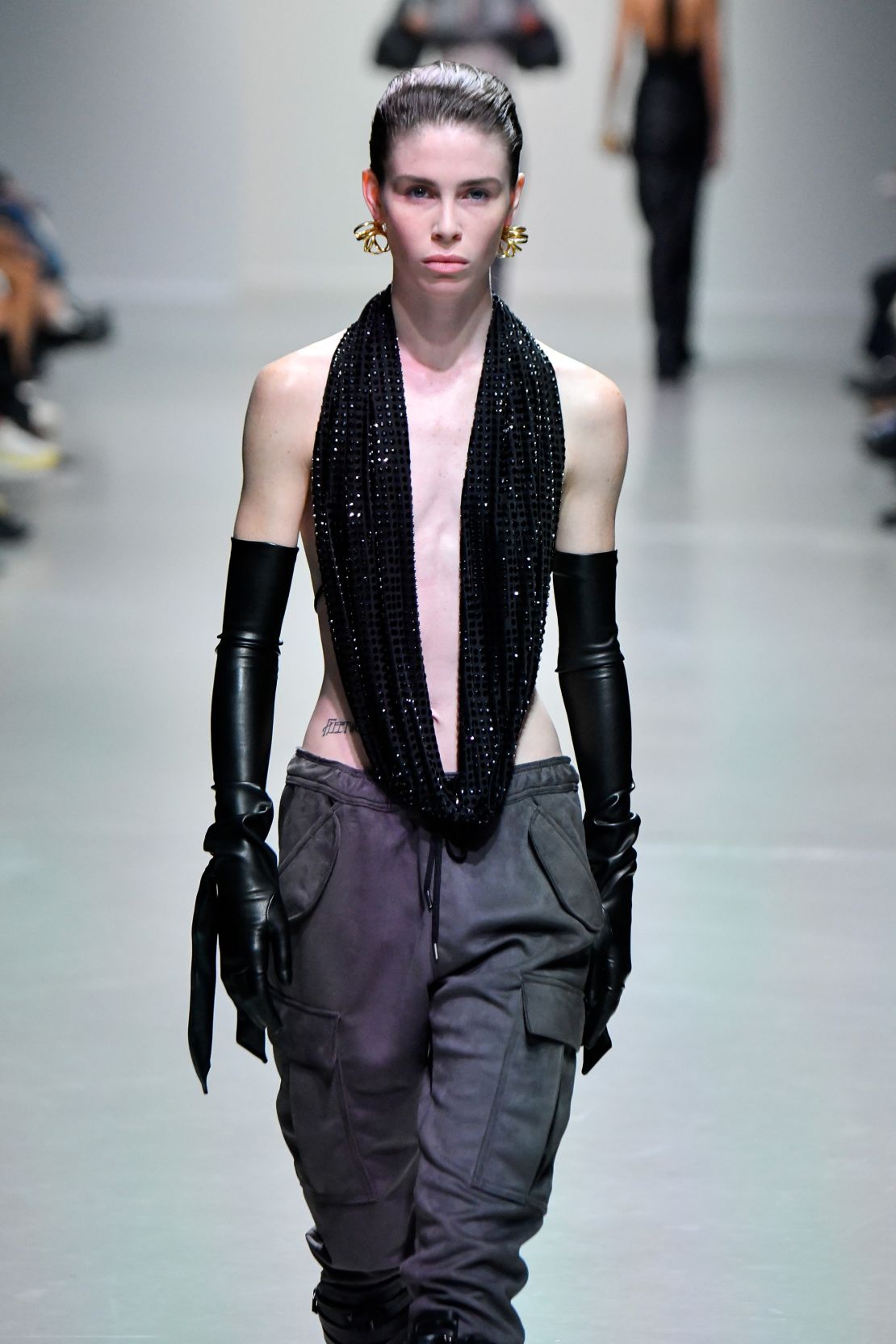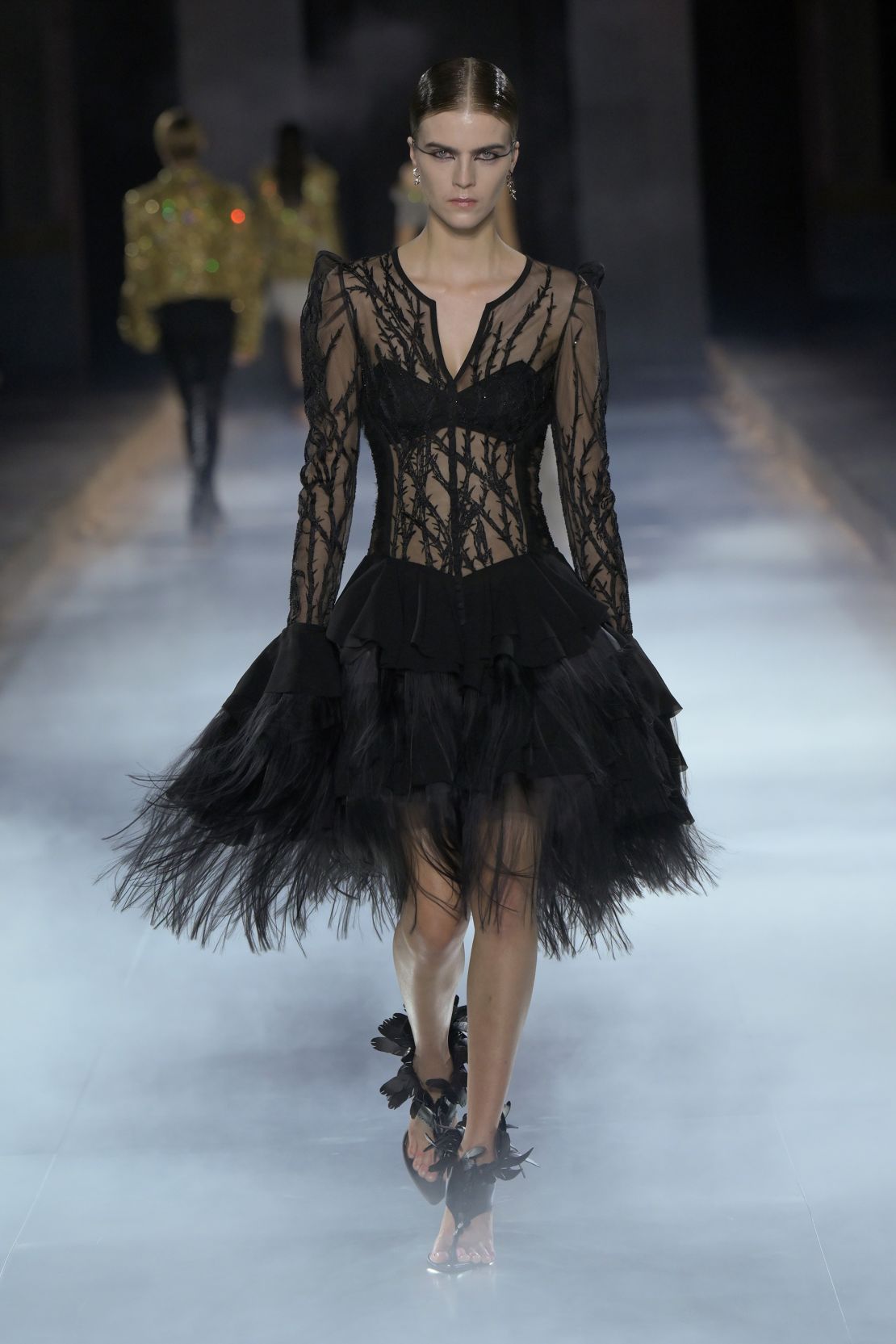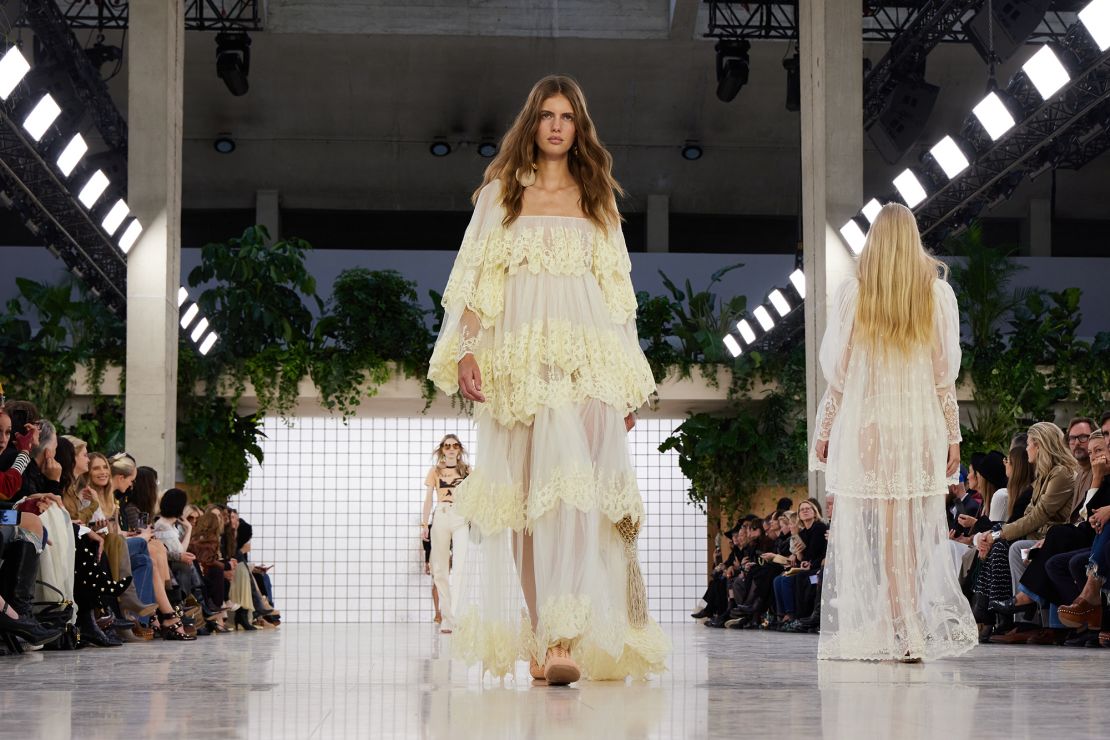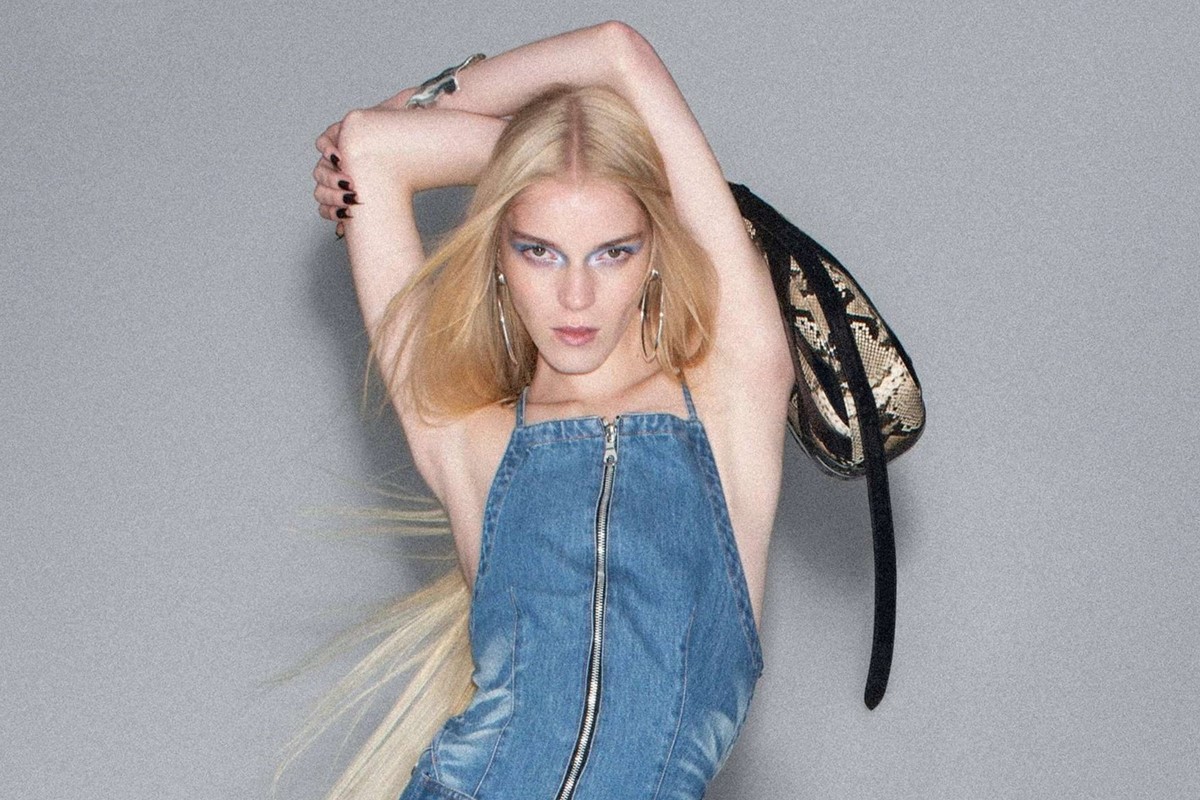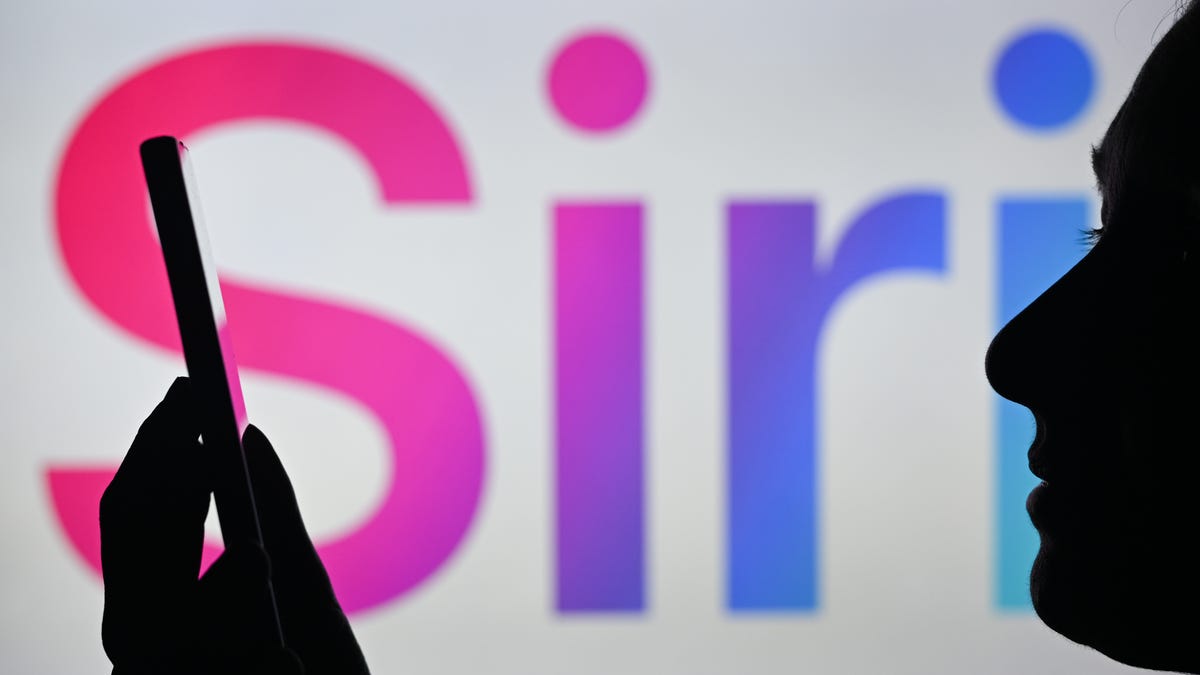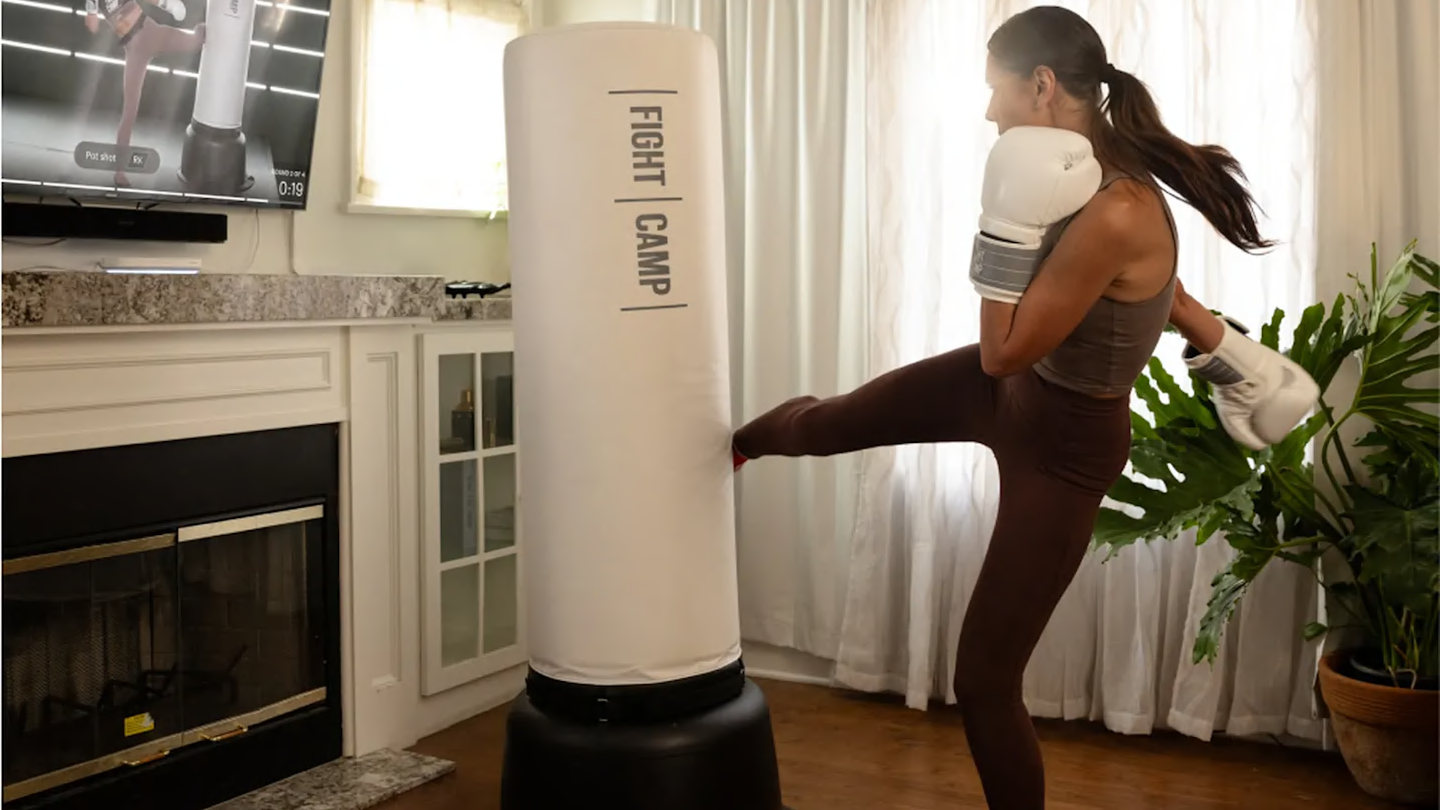Editor’s Note: CNN Style is one of the official media partners of Paris Fashion Week. See all coverage here
Paris
CNN
—
What role fashion can play in bleak times? As France — and much of Europe — grapple with the seemingly inexorable rise of far-right parties, headline-grabbing lawsuits tied to the #MeToo movement, alongside the global downturn of the luxury sector, designers at Paris Fashion Week, which culminated on Tuesday, felt it time to ask.
The notion of heritage provided comfort for some, while others embraced surrealism and more high octane designs in collections which reflected a desire to escape.
At Chloé, Chemena Kamali continued building her boho chic fantasy, reinterpreting the ethos of the founder. Drawing on the “the essence of Chloé’s roots as a starting point,” the collection included floral prints, plays on ‘flou’ (ruffled shirts), pleated sleeves, billowy blouses and laced ballerina pumps for an airy allure the house has long been known for.
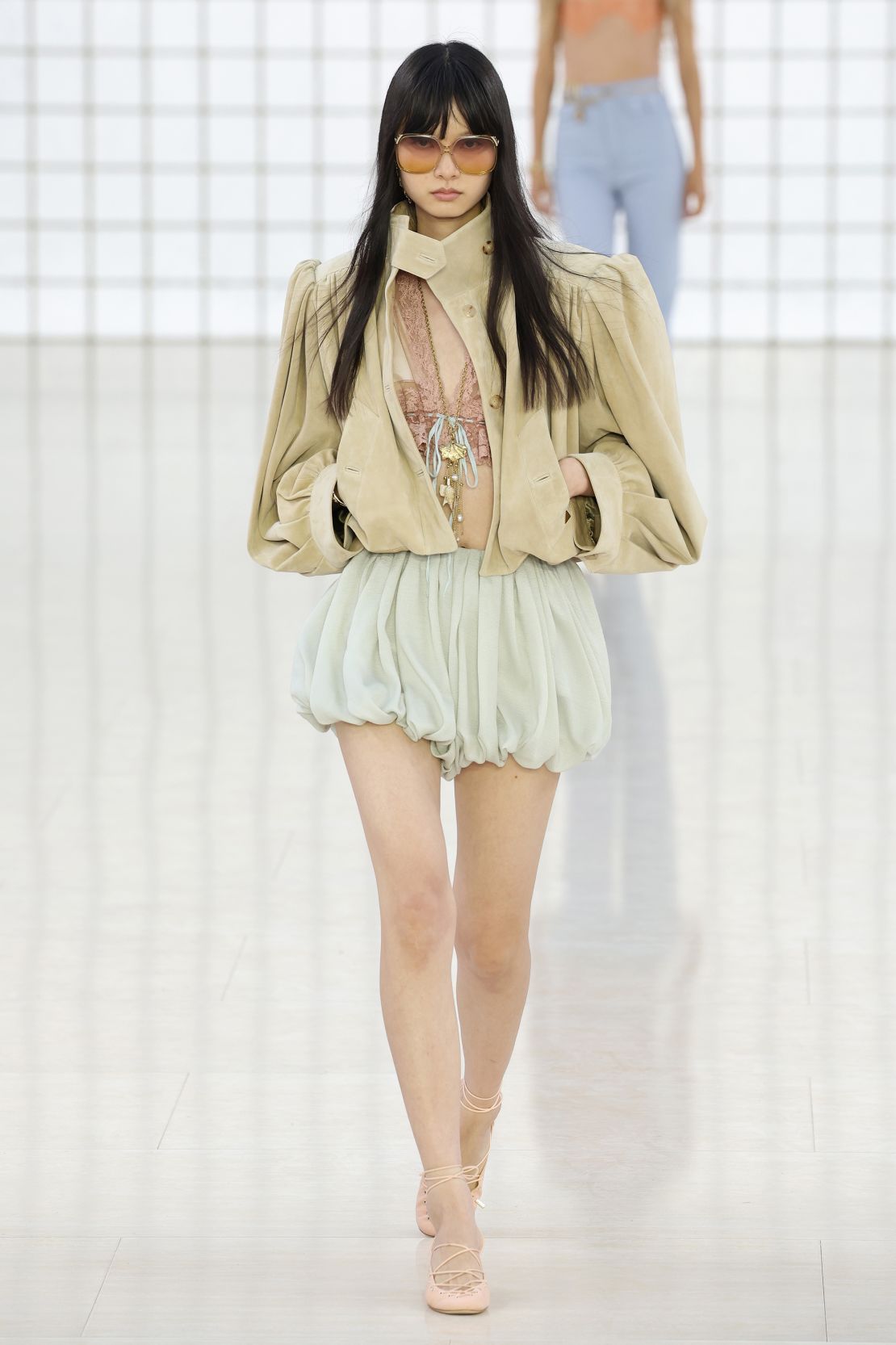
Valentino held its hotly anticipated show on Sunday, the first designed by the label’s new creative director Alessandro Michele who has come to the house from Gucci. Michele delved into Valentino’s archives, most notably its ‘70s heyday, and emerged with a vintage-inspired collection that was rich in details: from lashings of bows, polka dots and lace gloves to sequins — flourishes that might only be visible off camera.
Brand history was similarly front and center at Alexander McQueen, where Seán McGirr showed his second collection for the label. The show included the mythical figure of “the banshee,” who the founder had himself quoted in the 1990s, and delved into gothic, tailored lines with heavy platform heels — a nod to the maison’s DNA.
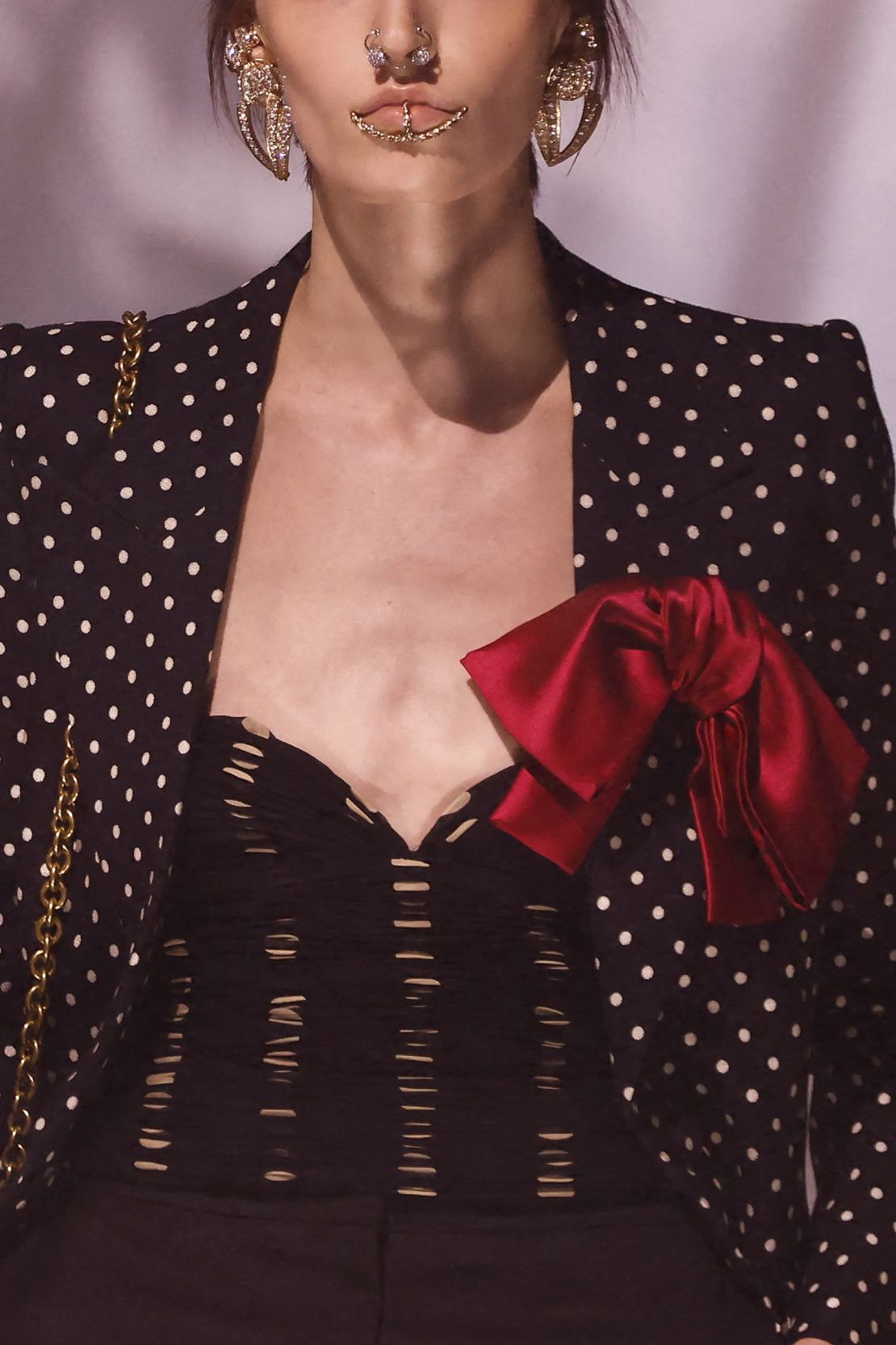
A different kind of retro appeared in the form of an indie sleaze revival — the pop culture period dominated by indie or alternative bands from 2006 to 2012 — at Ann Demeulemeester. Designed by Stefano Gallici, there were New Romantic touches in the form of ruffled collars, sheer lace fabrics and dishevelled tailoring. It was “a deep dive into my teenage years…living with my band,” Gallici said backstage.
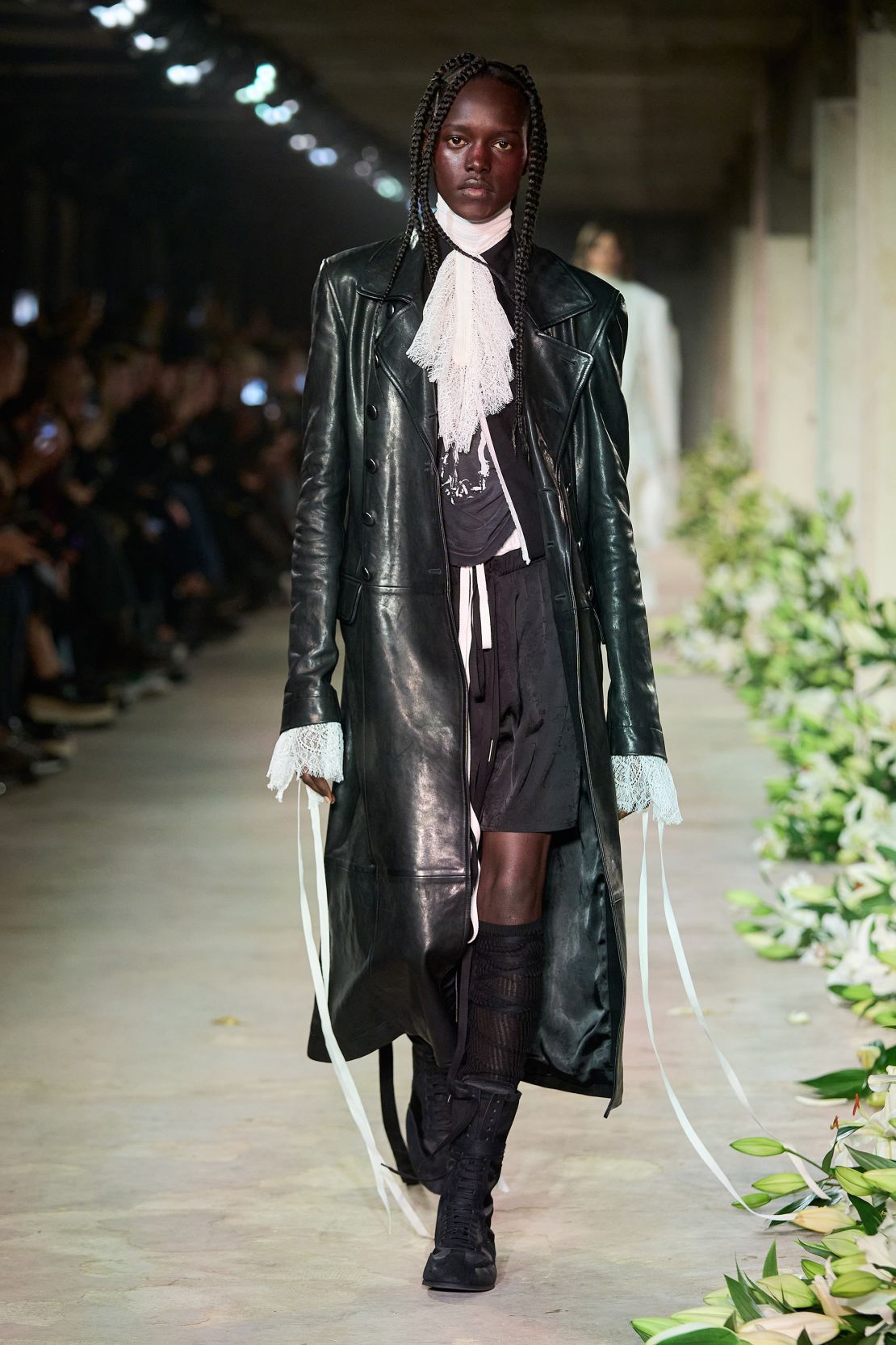
This year, as the city’s famed Centre Pompidou celebrated the 100th anniversary of the birth of the Surrealism — a movement which coincided with the rise of fascism in Europe, and an overall feeling of loss of meaning — it appears the artistic period inspires not just curators but fashion designers too.
It was the theme of Alphonse Maitrepierre’s collection, which integrated USB sticks, game console controllers and computer screens as jewellery and tops.
“I asked what the (surrealist) movement would look like today,” he said backstage before the show. “It would certainly be a movement that would be much more nerdy or geeky, with new technologies that are easily accessible.”
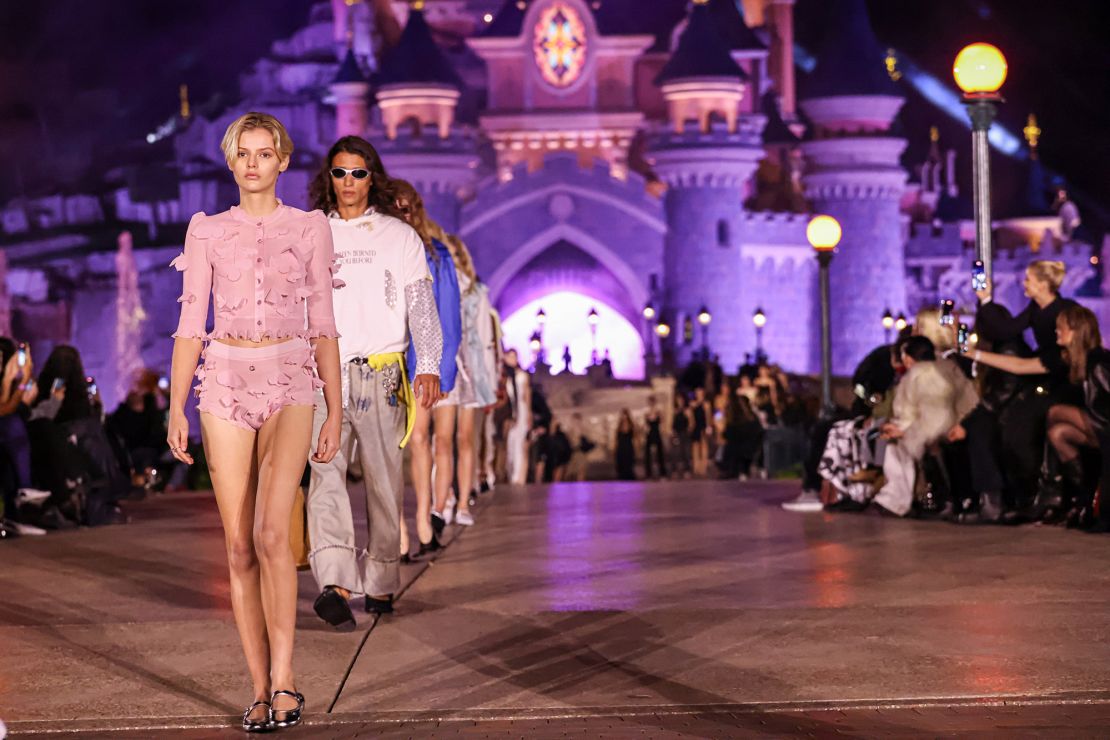
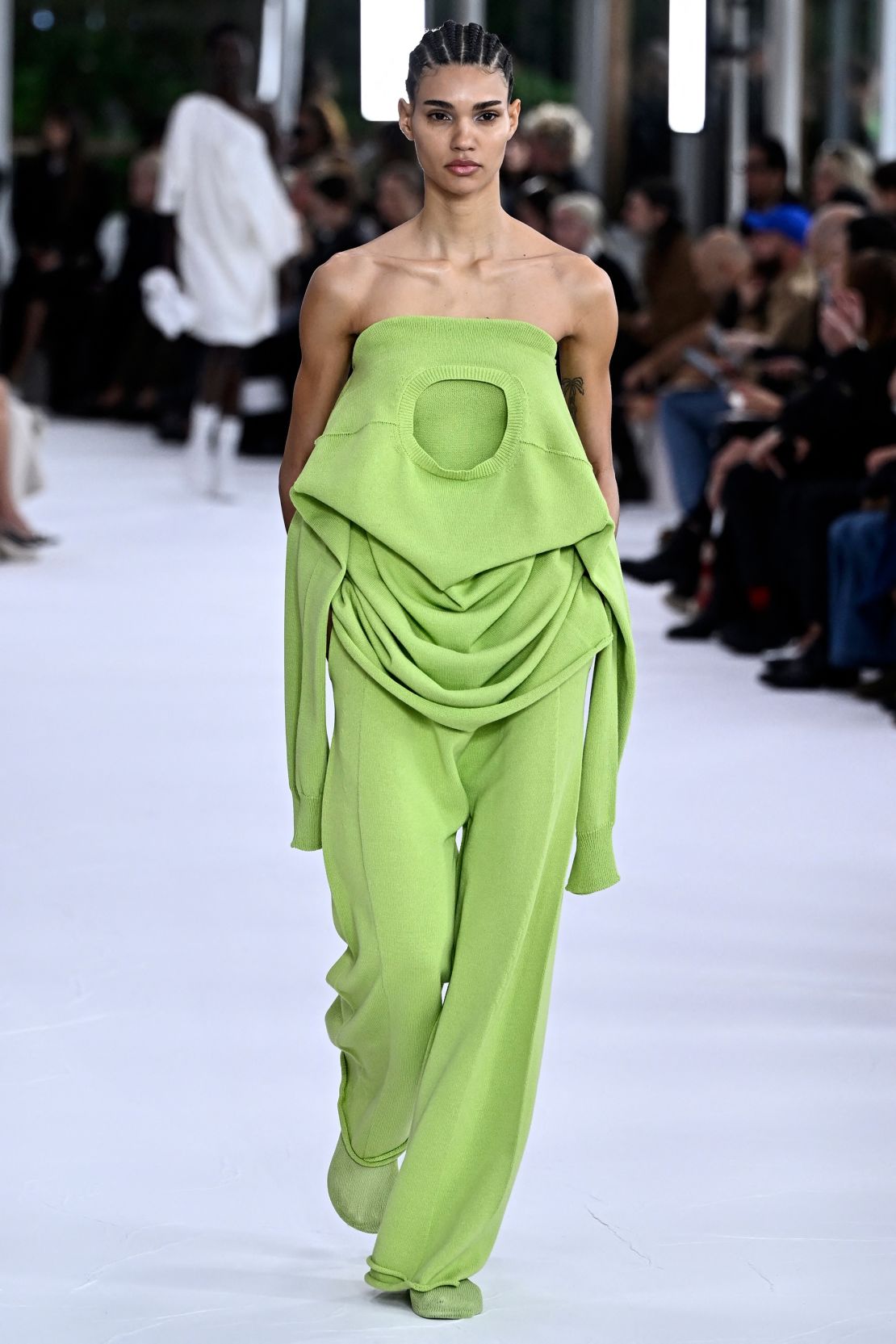
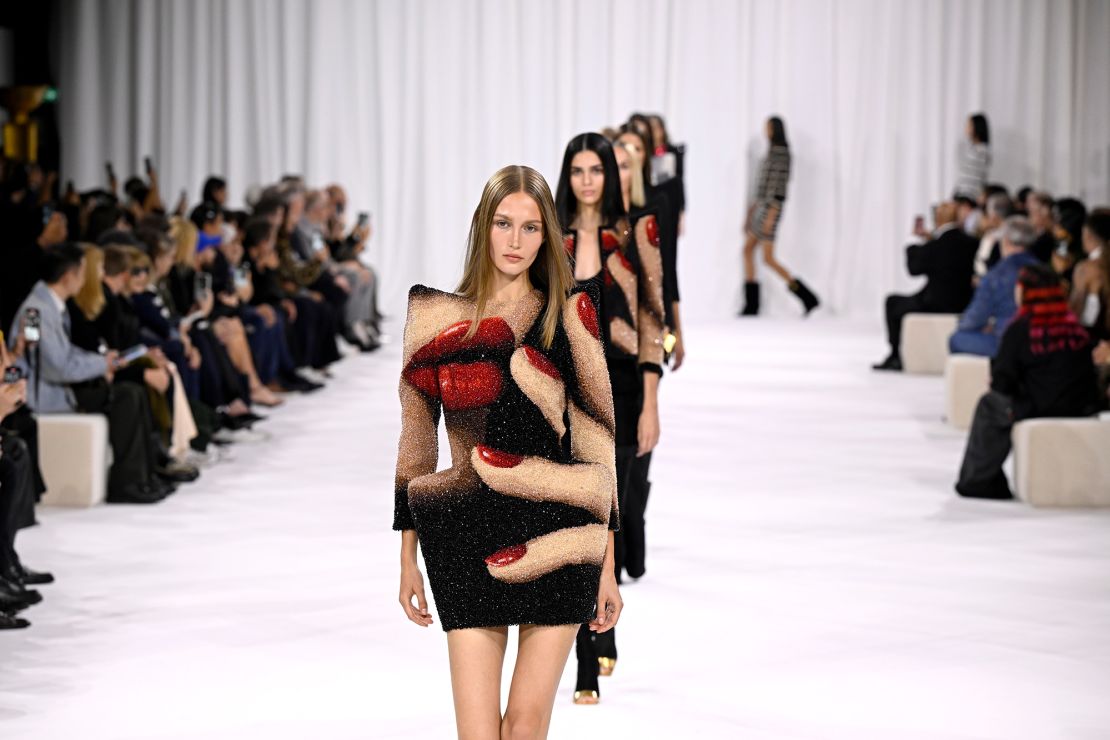
If surrealism is twisting the meaning of daily objects, then the shows in Paris delivered in spades: flipping sweaters and transforming them into dresses at Issey Miyake, switching up functional garments at Ottolinger, where shirts were deconstructed and collars worn as embellishments, and at Paloma Wool where knitwear was turned on its head.
Coperni’s show had an element of the surreal too. Staged at Disneyland, models wore Mickey Mouse-shaped heels and handbags, horns on shoes and other Disney-inspired detailing that created the feeling of a child-like collection. Backstage, designers Sébastien Meyer and Arnaud Vaillant referred to “a childhood dream, personal memories, (in order) to speak of innocence, (…) to play villains, a moment where you discover fear, danger.” They worked with the Disneyland’s “imagineers”, to give the park’s iconic Sleeping Beauty castle an added twist, including dramatic lighting, flames, and fireworks.
In the Grand Palais, a designer-less Chanel sent down a collection filled with delicate embroideries and intricate featherwork designed collectively by the in-house studio. Sheer capes, layered tweeds and checks; skirts with slits, fringes and sequins celebrated “delicacy, lightness and movement” said the studio, a delicate demonstration of the artisanry, or “métiers d’art,” that Chanel is best known for.
Dries Van Noten also showed off a collection sans designer and presented creations paying homage to the founder, “Cherished evocations of Dries Van Noten as both a continuation and a fresh perspective. Assessing, admiring and reinterpreting the designer’s language with fluency and lightness,” explained the show notes. Lingerie pieces, oversized blazers, fluid slip-on dresses and Bermuda shorts were reinterpreted with embroidery, python and floral prints and pops of bright color, delivering a quintessentially Dries collection.
As rumors of arrivals and departures fly in various houses, these collections proved a studio can be attuned to both a house’s history and clientele’s needs.
Stella McCartney staged a show that was 91% recyclable, displaying a collection that mixed party pieces, menswear, and a recurring bird motif on printed silks and necklaces — chosen to protest their use in clothing. “I’ve been thinking of the billions of birds that get killed for the fashion industry. For me they represent freedom, they represent purity and peace,” said McCartney backstage of her inspirations. “It’s about elevating a lightness of touch, having that femininity and that flight, that general kind of weightlessness … and having ‘the man’ in there… The balance between the two.”
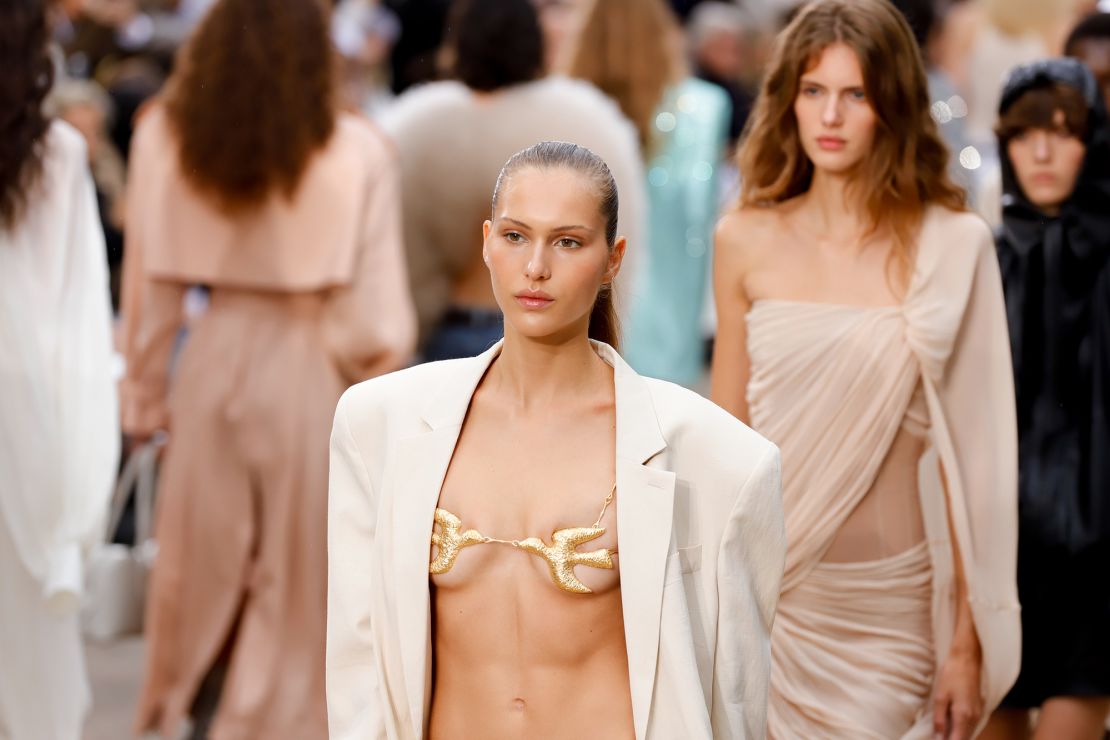
Andreas Kronthaler for Vivienne Westwood’s collection was dedicated to environmental activist Paul Watson who is currently in jail in Greenland due to his repeated attempts to stop whale hunting. The ethos of Dame Vivienne was celebrated and reinvented too in a collection that mixed ladylike touches with the industrial, reminding us that punk goes beyond clothing.
Young labels too, attempted to find creative solutions to the often wasteful nature of the fashion industry: Germanier and Stockholm-based Hodakova, worked on deadstock and discontinued pieces to bring in new green solutions and environmental awareness into their work.
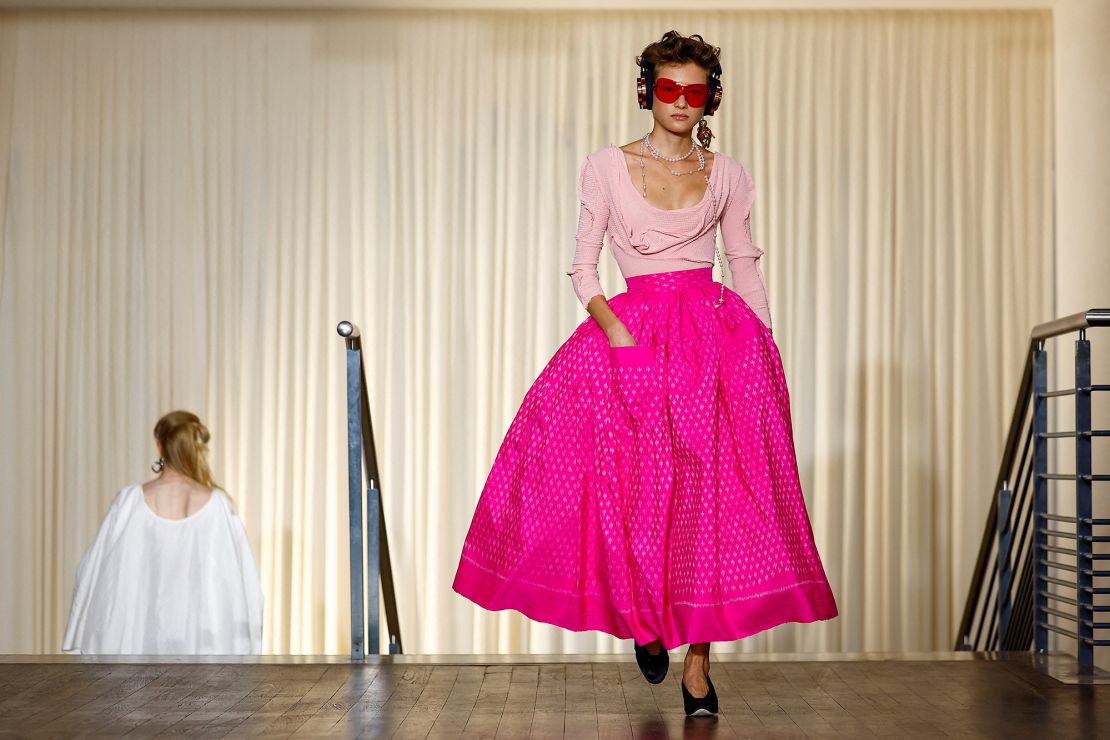
American modernist architect Louis Sullivan famously said that “form follows function,” and functionality was certainly in plentiful supply this season. Junya Watanabe constructed clothing inspired by items used in trekking and climbing, with zippers and straps aplenty built into futuristic, sculptural silhouettes.
Dior showed another collection dedicated to sports — celebrating performance, athleticism and the needs of a body in motion, with a recurring wink to antiquity — to the accompaniment of London-based artist and archer Sagg Napoli (the pseudonym of Sofia Ginevra Giannì) who shot arrows across the runway.
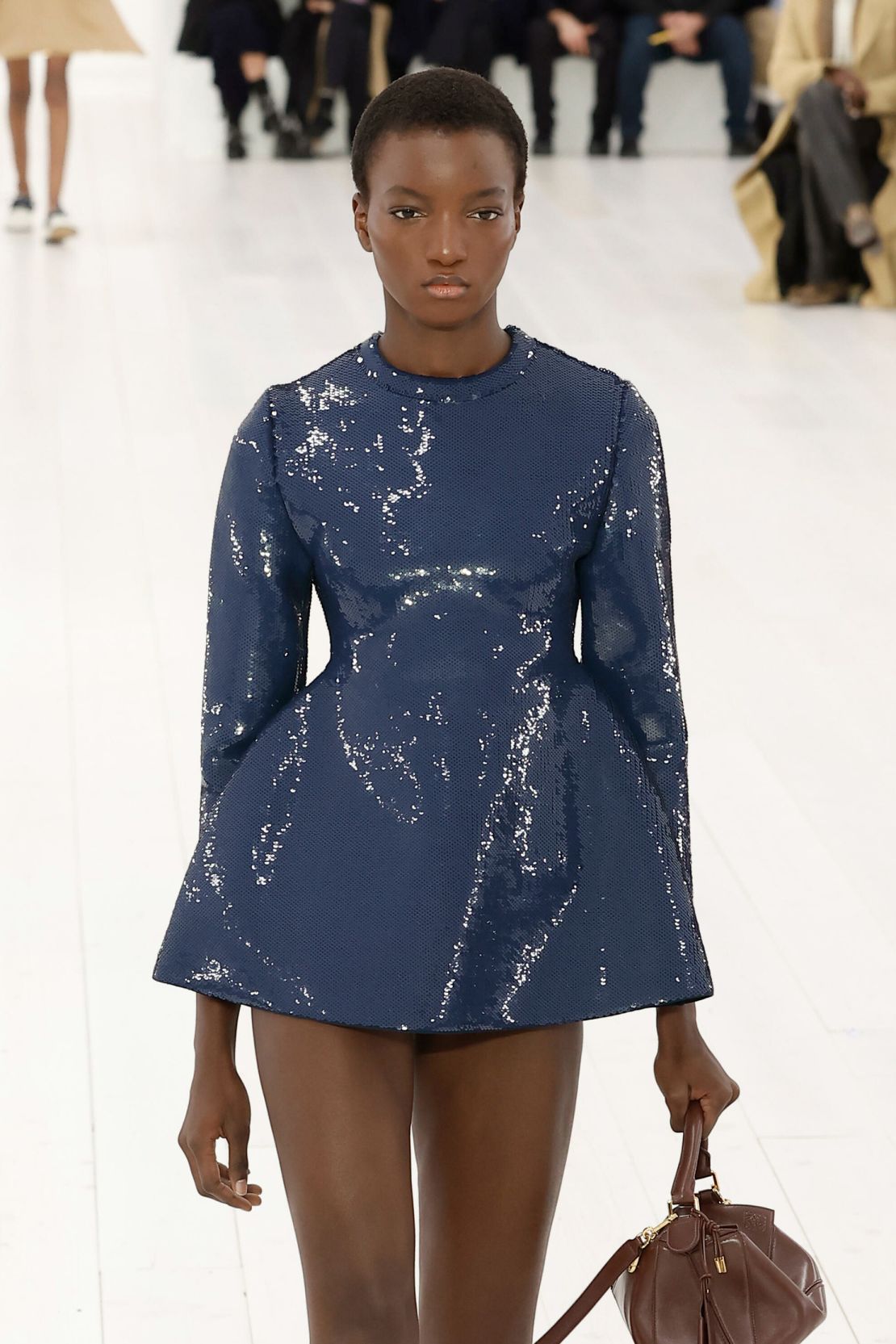
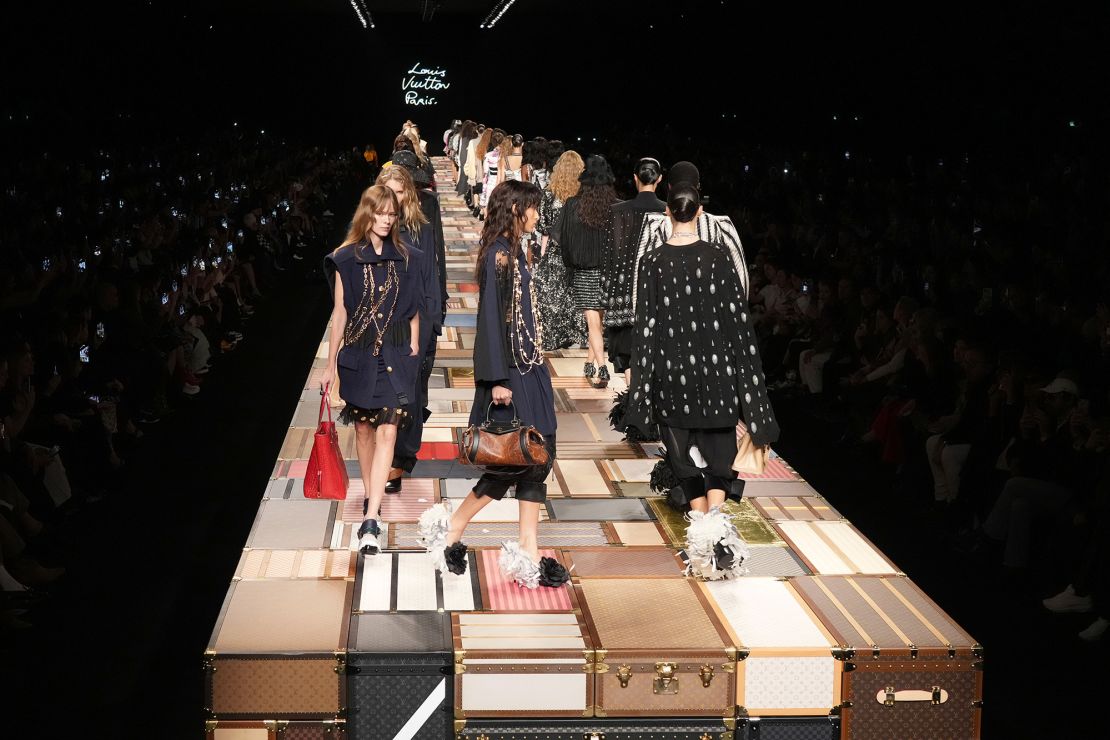
Miu Miu offered preppy lines, practical socks, shoes, boyish or sporty underwear and garments needed for on-the go, in a nod to an elevated realism of sorts. Miuccia Prada, backstage, discussed this show, in collaboration with artist Goshka Macuga (who she will collaborate again with during Art Basel 2024) “(We are) both part of the same world, (…) it always works because we are interested in reality, in the today” which translated into pieces “that you can wear (…) It was our way of being spontaneous.”
Sexy femininity and “les femmes fatales”
Saint Laurent though, was on a different wavelength: “The Saint Laurent woman loves to indulge in darker penchants, (and has) an attraction to danger and pleasure,” said the show notes, which resulted in the appearance of femmes fatales lifted from retro thrillers, clad in everything from oversized suits to blouses unbuttoned to the navel, or sheer, figure-hugging ensembles — a game of contrasts Yves Saint Laurent himself could have come up with.
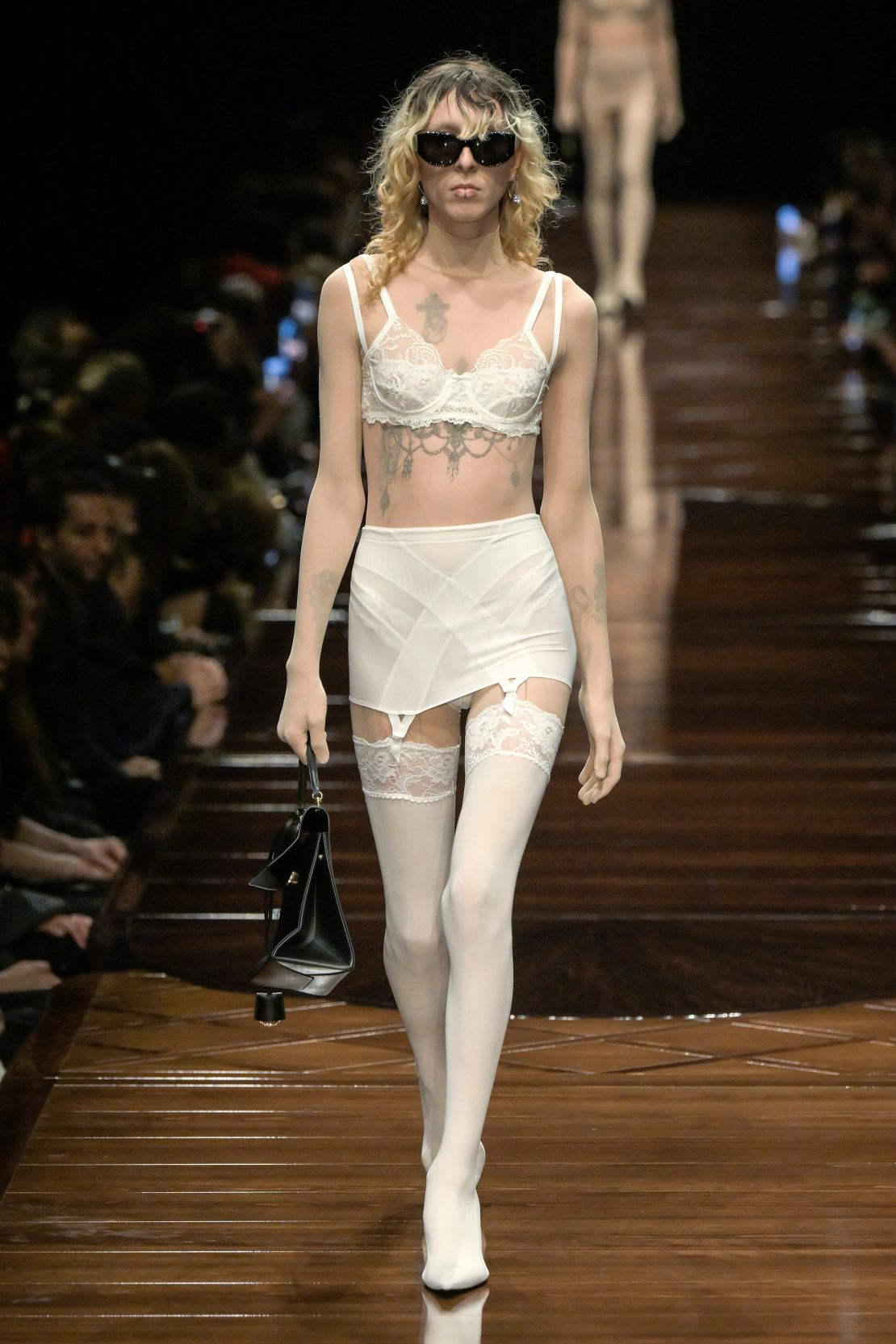
The house was not alone. At Balenciaga, the show opened with trompe l’oeil lingerie, embroidery on skin tone-based fabric, or stockings and heels paired with a bomber jacket with corset detailing. ”The lingerie look was a part of me that I have never really shown in my work, my aesthetic is not very much based on that very direct sex appeal or fragility and lace and trims,” said Demna (Gvasalia) after the show, adding that he looked for “something sensual, erotic, that I never really tried to show, but (has) always been part of who I am as a designer.”
As for Atlein, the inspiration was based on the documentary ”Rebel Dykes” by Siân A. Williams and Harri Shanahan. “The film captures the vibrant creativity, politics, and sexuality of punk lesbians in Thatcher-era London, the movement’s punk and post-punk codes and its fetishistic elements,” designer Antonin Tron explained in show notes about the collection where he mixed army boots and slitted leather skirts to merge hardened and sexy elements.
If fashion is a space for taking risks, it is, in Demna’s words, “to have a point of view” —and perhaps also to point out the paradoxes and contradictions women face on a daily basis.
